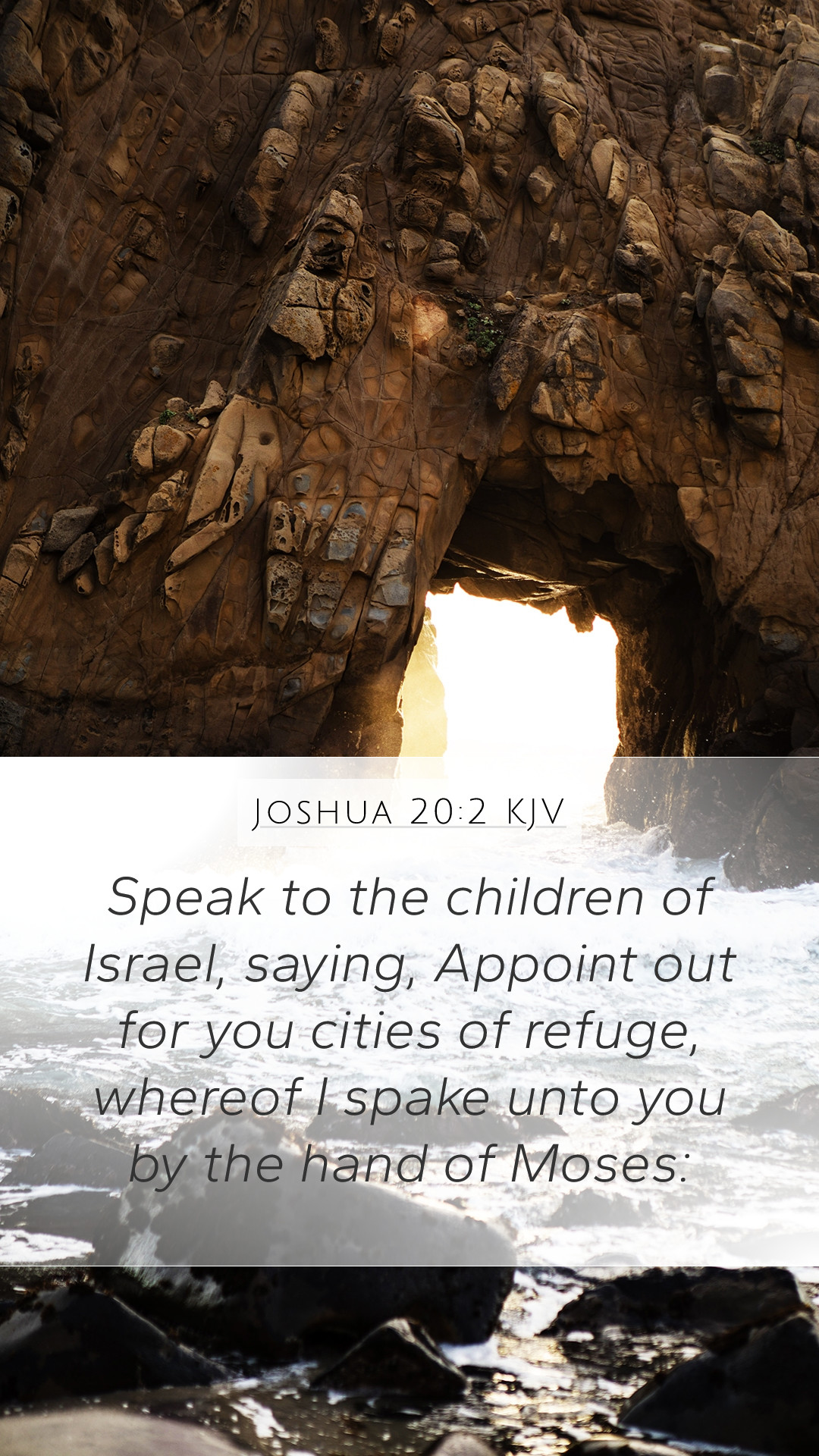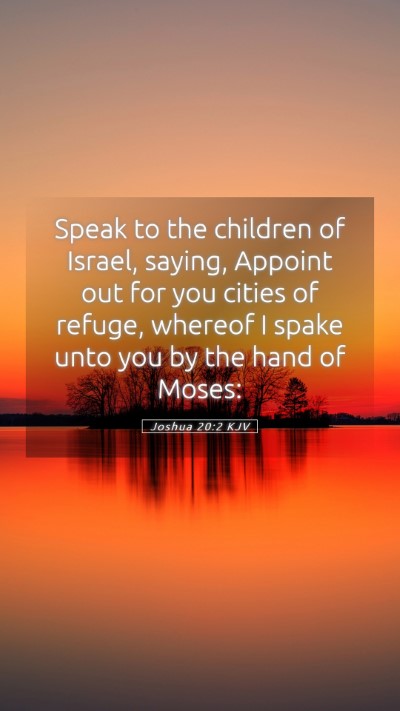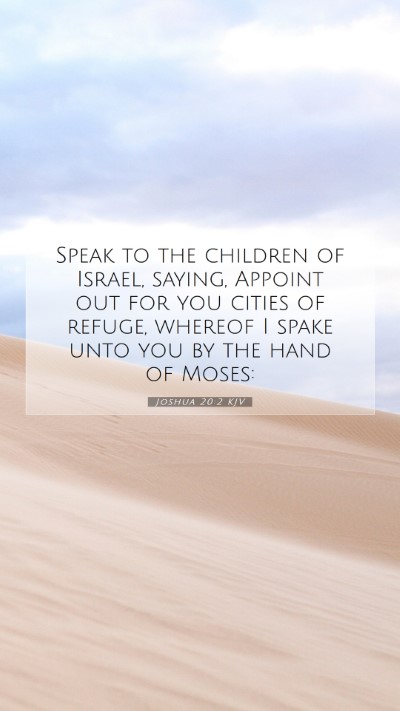Old Testament
Genesis Exodus Leviticus Numbers Deuteronomy Joshua Judges Ruth 1 Samuel 2 Samuel 1 Kings 2 Kings 1 Chronicles 2 Chronicles Ezra Nehemiah Esther Job Psalms Proverbs Ecclesiastes Song of Solomon Isaiah Jeremiah Lamentations Ezekiel Daniel Hosea Joel Amos Obadiah Jonah Micah Nahum Habakkuk Zephaniah Haggai Zechariah MalachiJoshua 20:2 Meaning
What is the meaning of Joshua 20:2?
Speak to the children of Israel, saying, Appoint out for you cities of refuge, whereof I spake unto you by the hand of Moses:
Joshua 20:2 Bible Verse Meaning
Understanding Joshua 20:2
Joshua 20:2 states: "Speak to the children of Israel, saying, Appoint out for you cities of refuge, whereof I spake unto you by the hand of Moses."
Context of the Verse
This verse is part of a larger narrative in the book of Joshua, which details the Israelites' conquest and settlement in Canaan. After they took possession of the land, God instructed them to establish cities of refuge. These cities served as safe havens for individuals who committed unintentional manslaughter, providing them protection from avengers until a fair trial could be conducted. This instruction is a reflection of God’s justice intertwined with mercy.
Verse Explanation
-
Divine Command:
The order to appoint cities of refuge indicates God's specific instructions for the Israelites. It signifies that God is deeply concerned with justice and the protection of innocent lives.
-
Human Error and Refuge:
The cities of refuge symbolize God's mercy, allowing those who have made mistakes to find safety rather than entering a cycle of vengeance. This reflects the theme of redemption and second chances present throughout Scripture.
-
The Role of Leaders:
Joshua, as a leader, represents the authority that acts in accordance with God’s will. His obedience in these directives illustrates the importance of leadership in maintaining justice and order in society.
Biblical Commentary Insights
Insights from Matthew Henry, Albert Barnes, and Adam Clarke provide a comprehensive understanding of this verse:
-
Matthew Henry:
He emphasizes that the provision of cities of refuge demonstrates God's intricate governance over society. It illustrates that God wants to protect the vulnerable and maintain order, exhibiting His nature as a just and merciful deity.
-
Albert Barnes:
Barnes notes that these cities were to be designated as places of escape for the innocent, showcasing God's compassion for those who unintentionally commit wrongdoings. He stressed the accessibility of grace through these cities.
-
Adam Clarke:
Clarke highlights the historical context of this law, explaining that it served both legal and social purposes in ancient Israel. It encouraged justice without retribution, a concept that resonates with the New Testament's teachings of love and forgiveness.
Application in Life
The message of this verse can be applied to modern life in several ways:
-
Understanding Justice and Mercy:
It serves as a reminder that mercy should accompany justice. In our interactions with others, we should seek to be compassionate, especially towards those who have made mistakes.
-
The Importance of Second Chances:
Recognizing the need for refuge in our communities encourages us to create environments where individuals can seek forgiveness and restoration.
-
Leadership Responsibility:
This verse also highlights the role of leaders in society to implement laws and guidelines that reflect mercy and justice. It challenges leaders to guide with integrity, reflecting God's character.
Cross References
- Exodus 21:13 - Instructions about cities of refuge.
- Numbers 35:6 - Designation of cities of refuge for the Levites.
- Deuteronomy 19:2-4 - Details on how cities of refuge are to be established.
Conclusion
Joshua 20:2 is a potent reminder of God's overarching concern for justice and mercy, reflecting His character throughout Scripture. By studying this verse and its implications, one gains valuable insights into the nature of divine law, the importance of community compassion, and the essential responsibilities of leadership. It encourages each individual to seek understanding not only of the Scriptures but also of how they can apply such teachings to pursue justice and mercy in their daily lives.


